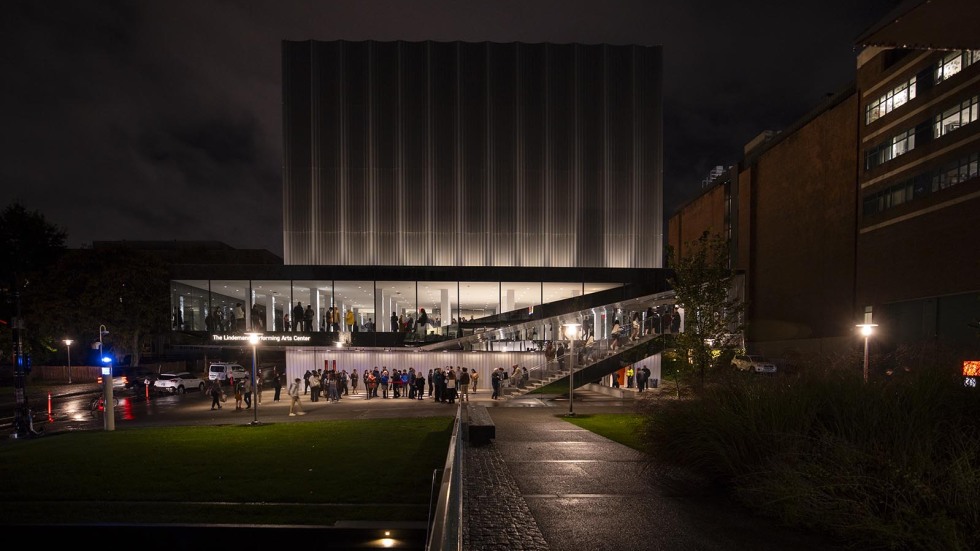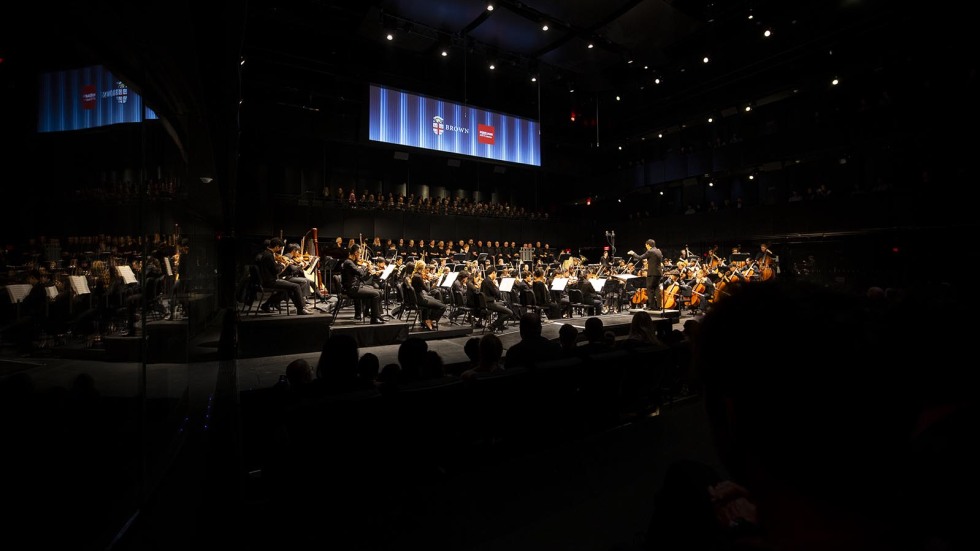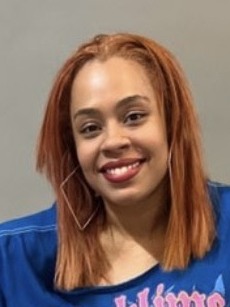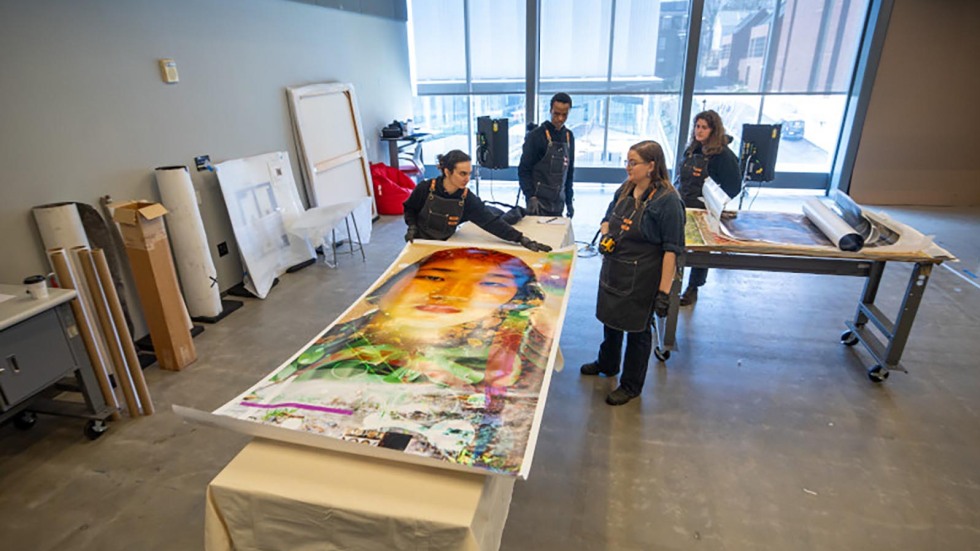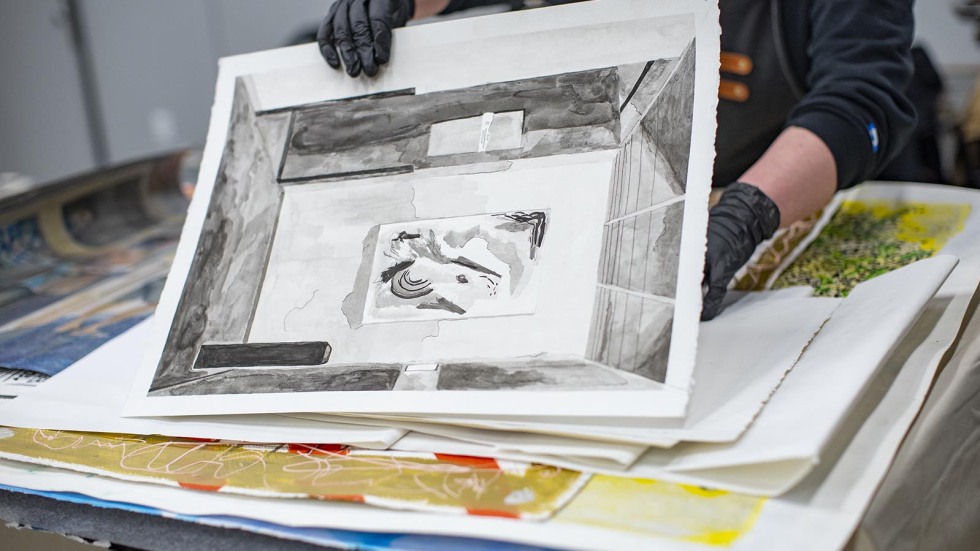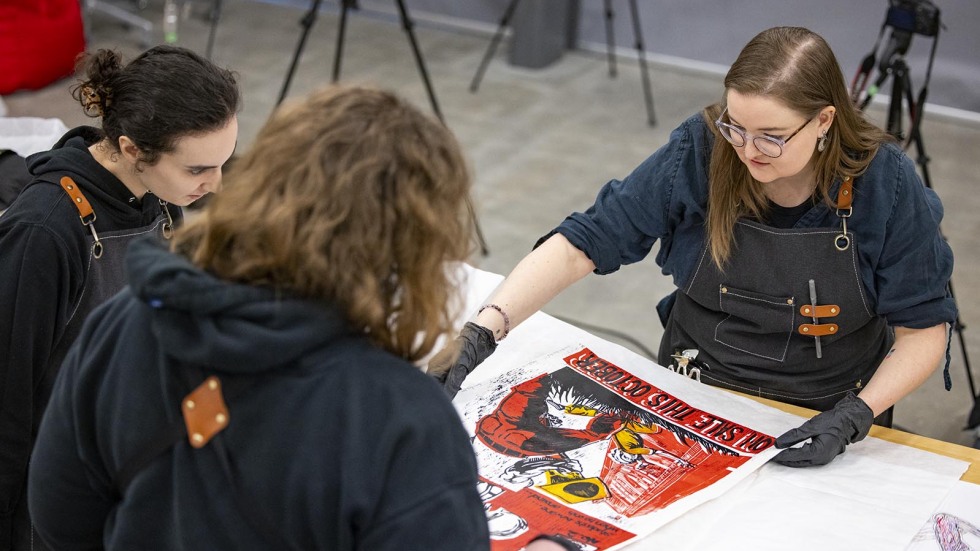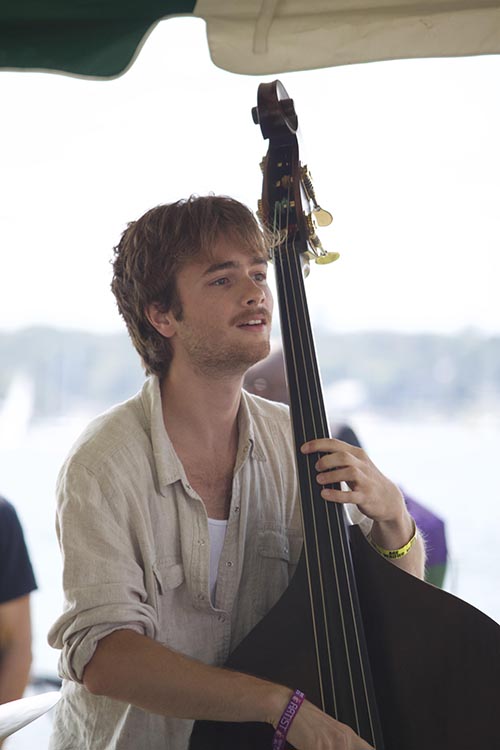PROVIDENCE, R.I. [Brown University] — Since its debut in October 2023, Brown University’s Lindemann Performing Arts Center has quickly become a premier arts destination, captivating audiences with the inaugural Brown Arts IGNITE Series featuring more than 50 compelling performances, programs and events.
Staging such a vibrant mix of events, concerts, theater productions, dance performances and visual arts exhibits at The Lindemann and in facilities across Brown’s Perelman Arts District campus requires multiple highly-skilled teams.
Enter ArtsCrew — an innovative new workforce development program launched by the Brown Arts Institute and designed to convene a robust pool of campus and local talent to power Brown's artistic endeavors.
The program tackles the challenge of cultivating a local, skilled arts workforce by providing hands-on training, skills development, employment opportunities and a supportive community for aspiring arts professionals. Since its launch last fall, nearly 100 new Brown ArtsCrew members have been hired and trained to fill a variety of part-time positions, including in areas such as box office and front-of-house management, stage management, visitor services, producing, marketing, exhibit preparation, and sound and lighting design.
Open to both local residents and Brown students, the new roles require only a high school diploma and an interest in exploring a career in the arts, culture or entertainment. According to program leaders, more than half of the new hires are budding Rhode Island-based artists, dancers, musicians and performers, along with other local arts educators, administrators and production staff.
